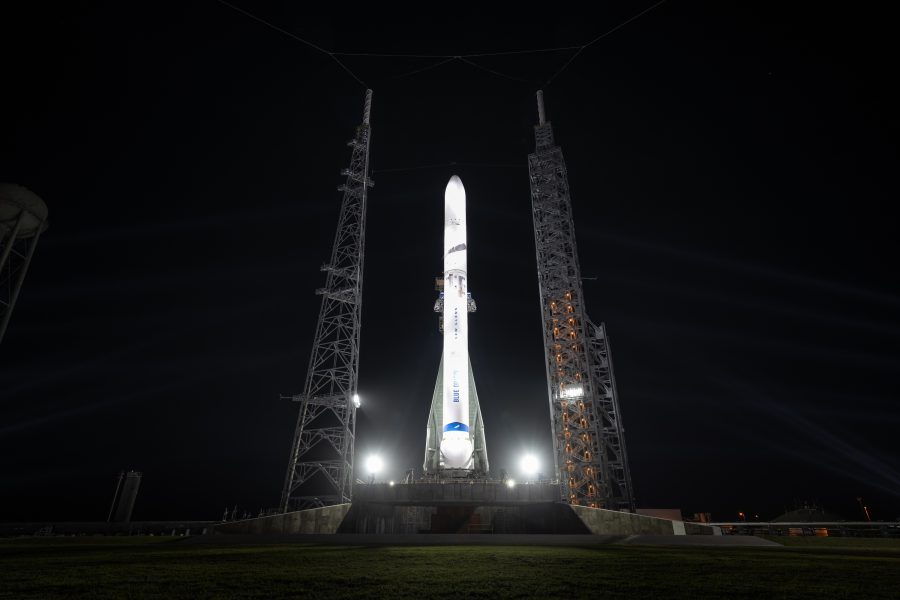Space Systems Command is adding to its roster of small launch providers, the Space Force’s latest move to fuel increased industry competition.
Blue Origin and Stoke Space are now authorized to compete for launches under USSF’s Orbital Services Program-4. OSP-4 is for fast-turnaround launches and small payloads, with launch contracts awarded 12-24 months in advance and mission requirements starting at 400-pound payloads. It was the vehicle used to award the launch contract for the Space Force’s “VICTUS NOX” mission, which moved a satellite from warehouse to orbit in five days last year. Firefly Aerospace, the launch company, got the contract 12 months in advance.
All told, there are now a dozen companies in approved for OSP-4: Blue Origin, Stoke Space, ABL Space Systems, Aevum, Astra, Firefly Aerospace, Northrop Grumman, Relativity Space, Rocket Lab, SpaceX, United Launch Alliance (ULA), and X-Bow. One previous participant, Virgin Orbit subsidiary VOX Space, has dissolved.
Seven launches have been awarded through OSP-4 so far: three to Northrop Grumman and one each to Firefly Aerospace, Astra Space, Rocket Lab, and VOX Space. The program, which has a $986 maximum spend for an estimated 20 launches, must wrap up by October 2028.
SpaceX and ULA are members of both the OSP-4 and larger National Security Space Launch programs, and remain the dominant players in the launch industry. ULA held a virtual monopoly on national security launches for years, but SpaceX has surged ahead, accounting for 90 percent of U.S. launches in 2023.
Other companies, like ABL Space Systems, Relativity Space, and X-Bow, have yet to launch a military satellite. Some have yet to even put a spacecraft in orbit.
The two newcomers have vastly different backgrounds and experience with DOD. Blue Origin, owned by Amazon founder Jeff Bezos, has already secured a place in NSSL Phase 3 and is gearing up to unveil its New Glenn rocket, an upgraded, larger version of its New Shepard rockets, by September.
Stoke Space only recently test-fired its first-stage rocket engine and is still working on its Nova rocket. Recently retired Lt. Gen. John E. Shaw, former deputy commander of U.S. Space Command, joined the company’s board of directors in April.
More Competition
Space Force officials want increased competition as a lever for driving down the price of launch. It split NSSL Phase 3 into two “lanes:” Lane 1 to prioritize commercial-like missions, where USSF expect to muster a higher tolerance for risk, and Lane 2 for no-fail missions.
When the service announced contracts for Lane 1 in June, Blue Origin was selected alongside SpaceX and ULA. But enabling new competitors to join OSP-4 offers a glimpse at what’s to come for NSSL, which might also add other authorized bidders to the program.
“As we anticipated, the pool of awardees is small this year because many companies are still maturing their launch capabilities,” said Brig. Gen. Kristin Panzenhagen, program executive officer for assured access to space, in a statement. “We expect increasing competition and diversity as new providers and systems complete development.”
OSP-4 could be a proving ground for start-ups like Astra and Rocket Lab, which are scheduled to launch missions in the next few years. Rocket Lab is also on contract to launch a satellite for VICTUS HAZE, the follow-up to VICTUS NOX, though that contract was awarded through the Defense Innovation Unit and is not part of OSP-4.

